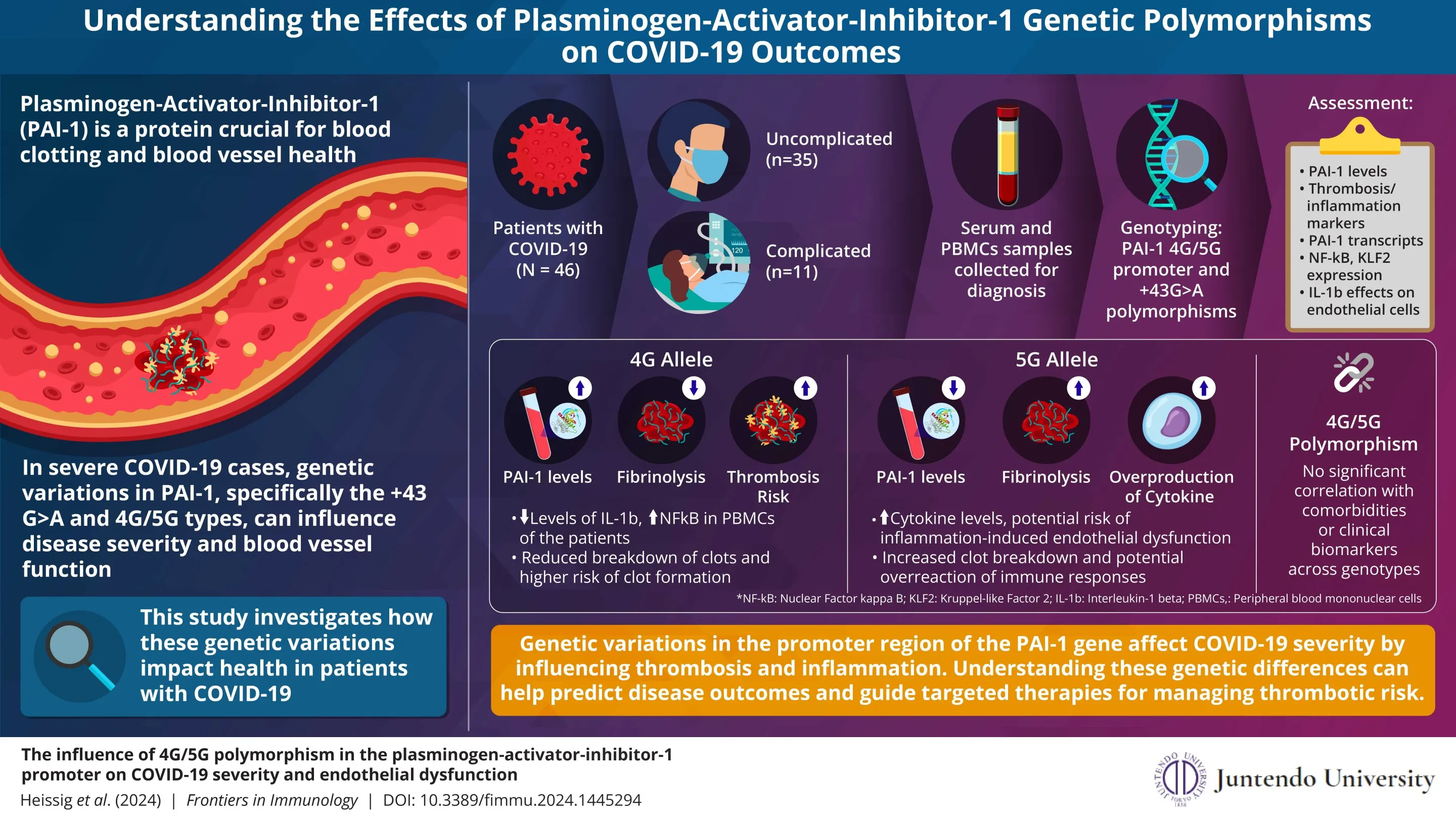Medicine Research: How PAI-1 Polymorphisms Impact COVID-19 Outcomes

In the dynamic landscape of health science, recent medicine research has shed light on the complex relationship between genetics and COVID-19 outcomes. PAI-1 polymorphisms—variations in the gene responsible for plasminogen activator inhibitor—play a pivotal role in how individuals respond to this virus. Despite global vaccination efforts, COVID-19 continues to pose significant risks, leading to severe complications and fatalities due to disrupted coagulation and impaired fibrinolysis.
Health research news indicates that understanding these genetic factors can pave the way for more effective treatment strategies tailored to individual genetic profiles. Through advancements in medicine science, healthcare providers can enhance patient care and potentially reduce the impact of COVID-19.
Disclaimer: The information provided on this site is for informational purposes only and is not intended as medical advice. We are not responsible for any actions taken based on the content of this site. Always consult a qualified healthcare provider for medical advice, diagnosis, and treatment. We source our news from reputable sources and provide links to the original articles. We do not endorse or assume responsibility for the accuracy of the information contained in external sources.
This article was prepared using information from open sources in accordance with the principles of Ethical Policy. The editorial team is not responsible for absolute accuracy, as it relies on data from the sources referenced.